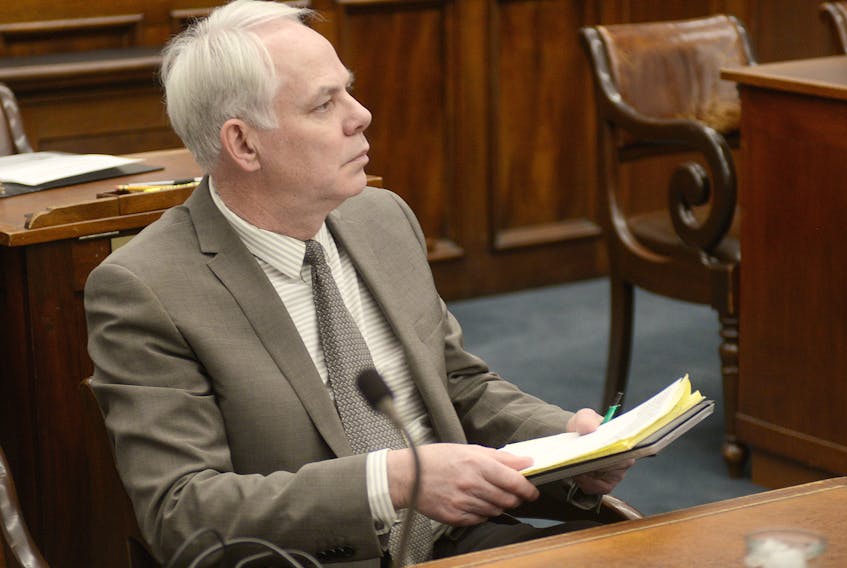CHARLOTTETOWN, P.E.I. — Opposition Leader Peter Bevan-Baker says a lack of clarity surrounding enforcement of a legislated cooling-off period for former ministers is cause for concern.
Bevan-Baker said he has begun discussion with the Opposition office about changes to the province’s Conflict of Interest Act. A Green amendment to the act was introduced in the legislature in 2018 but was not passed.
The Conflict of Interest Act limits former ministers from working for firms that received contracts from their former departments for a six-month period after they have left office. But the act does not explicitly set out how this provision is enforced.
Last week it was reported former Justice Minister Jordan Brown briefly returned to work at his former law firm, Cox & Palmer, fewer than three months after leaving office. Cox & Palmer had obtained a number of contracts with Brown’s former departments during his tenure as minister, worth a combined total of $79,941.
Brown told said he resigned from Cox & Palmer shortly after discovering the firm had benefited from contracts with his former department. Brown initially said the province’s conflict of interest commissioner had “cleared” him to work at the firm, but later stated the commissioner had no jurisdiction to do so.
"It's certainly exposed another inadequacy in the act as it currently exists," Bevan-Baker said.
Bevan-Baker said a bill that would amend the Conflict of Interest Act has been before the legislature since 2018.
The amendments would increase the cooling-off period for former ministers from six months to 12 months. The conflict of interest commissioner would still have discretion to waive this period.
The amendment would also allow members of the public to request the commissioner to investigate possible conflicts of interest. Currently, only elected MLAs, the premier or the legislative assembly as a whole can compel the commissioner to examine possible conflicts of interest of sitting MLAs.
But Bevan-Baker said his bill does not yet propose amendments related to enforcement of provisions related to former ministers.
"I think there needs to be clarity in what role the commissioner would play in a situation like the one that Jordie has found himself in," Bevan-Baker said.
"It would be better if there was something in that legislation to empower the conflict of interest commissioner to do something pro-actively."
The Green bill had not been fully debated in the legislature. Bevan-Baker said this was partly due to the impending end of the term of conflict of interest commissioner John McQuaid. McQuaid’s term expires in 2020.
"We wanted to make sure whoever replaces him, that we have an opportunity to speak with them before we bring it back to the floor," Bevan-Baker said.
After requesting comment from Justice Minister Bloyce Thompson, The Guardian (of SaltWire Network) was told Thompson’s department does not suggest amendments to existing legislation.
“Any future and potential amendments to the Conflict of Interest Act would need to be put forward by the legislative management committee of the assembly,” a representative said in an emailed statement.
When asked why he had not waited for the six-month period to expire before returning to work, Jordan Brown said the severance received by former ministers was limited.
"It would be nice to have the luxury of not worrying about a number of practical things in day-to-day life," Brown said.
As a one-term minister, Brown would have been eligible for a $41,000 severance after his election loss in April 2019.
Brown also raised the mental health implications of being restricted from returning to his former legal profession.
“September was a month where, whatever I was doing, I was feeling a lot of anxiety about getting back to work," Brown said.
“I have a lot of life in front of me and I'm not one to kind of sit around and not do too much."
RELATED: Former P.E.I. justice minister returns to work prior to cooling-off period









